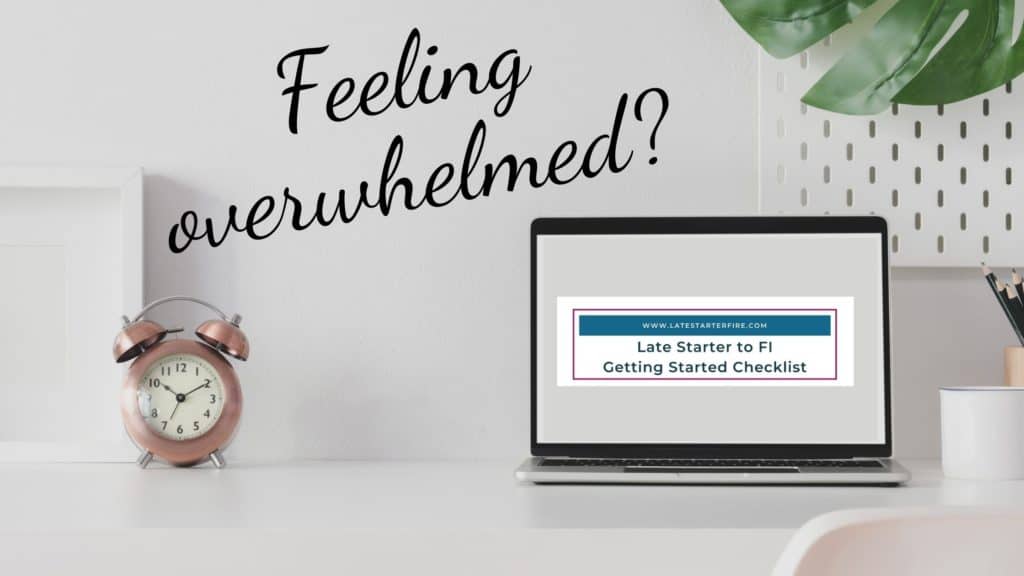
Disclosure: Please note that I may benefit from purchases made through my affiliate links below, at no cost to you
As I approach the final year of my 40s, I am in a reflective mood.
And being immersed in this coronavirus pandemic with night curfews and carrying a work permit in case I am stopped by the police for travelling outside 5km of my home … well, let’s just say the present is bizarre. The future is uncertain. So let’s look at my past instead. My financial past, to be exact.
I have made many money mistakes in the past, the most obvious one being that I left proper money management to my late 40s. Duh!
Let me set the scene for you.
The Roaring Twenties
All through university, I longed to be working. I could not wait to earn money for myself and be independent, no longer dependent on my parents.
Unfortunately, I graduated from university in the early 90s where jobs in my field were scarce. I remember dropping resumes to various establishments and not hearing anything back at all. Eventually, I landed a weekend job and worked as a locum during the weekdays. One of my locum jobs turned into a full time job.
More than twenty five years later, I am with the same employer.
I happily worked 12 to 15 hour days, weekends if necessary. It was an exciting time – and after the instability of working as a locum, never knowing if income was guaranteed for more than a few weeks ahead, it was fantastic.
I was living at home with my parents. I had little expenses. And a lot of disposable income to spend.

Feeling Overwhelmed?
Use this FREE Checklist to start your journey to Financial Independence
Early Goal - Purchasing a Home
My first big money goal was to buy a property. This was really important to me – I wanted security and stability.
I wanted a place to call my own and I didn’t want to live with my parents forever.
I craved freedom and independence.
But I was also hugely influenced by my mother for whom home ownership signified financial security. Read more about it – My Money Story
And in Australia in the 1990s, buying property is seen to be a good investment – the prevailing wisdom then is that property prices will always rise.
I knew about saving for a deposit. Buying a house was a common topic of conversation among friends and colleagues. Banks then were happy to lend 90% of purchase price. I was brought up to view debt as BAD so I aimed for a 20% deposit.
It took me 9 years from university graduation to save up a deposit and purchase my home.
In those 9 years, I was often discouraged by the slow process of saving my deposit. And at times, I was disheartened, watching property prices increase rapidly.
In the meantime, to cheer myself up, I went on overseas holidays and alternated between being frugal (bringing lunch to work) and mindlessly buying books, clothes and shoes. A girl has to live – was my motto – she can’t just focus on saving endlessly for a house deposit and not have a life.
Some Good Money Decisions in My 20s
During this time, l bought shares as state owned companies such as Commonwealth Bank, Telstra and Qantas were privatised and floated on the share market. To be honest, I only bought them at the urging of my father.
My accountant explained about reinvesting the dividends as he observed that I hardly needed the cash from dividends. So I did that too.
A family friend was an agent for AMP and convinced me to start a superannuation fund (retirement account) which was separate to the one provided by my employer. At the time, I was working as a locum and did not qualify for any superannuation anyway. Once a year, I would deposit $2000 to $3000 after tax into this account.
In addition, I started salary sacrificing a very small amount from my full time job towards the superannuation fund associated with my employer.
So it seems that I made some good financial choices in my 20s … what happened next?
The biggest money mistakes started after I bought my house – in my 30s and most of my 40s.
Money Mistake 1 - I Sold the Majority of My Shares to Fund My Home Deposit
I was aiming to save 20% of home purchase price as a deposit but ended up having 30% in cash by the time I bid successfully for my home at the auction.
But because I was debt averse, I sold the majority of my shares to make up another 10% of the deposit. So in the end, I had 40% and borrowed the other 60%.
Would I be in a better position today had I held on to those shares? Most likely, yes. The number of shares would have increased simply due to dividends being re invested. However, they were individual company shares and besides CBA, the others may not have done as well.
Money Mistake 2 - Lifestyle Creep
I LOVE my house. Full stop.
Once I bought my house, I wanted to create a home that reflected who I was and a space that was comfortable and inviting. And so I bought home furnishings, kitchen appliances, and just … stuff.
I bought most of them on sale. Remember Boxing Day sales? I would be there at 7am, ready to shop till 9pm. But the irony is that now I am struggling with decluttering.
I love my comfort and not having to economise. I didn’t go over the top but I never really worried if I was spending too much. After all, I could afford it. And I needed to reward myself for working so hard.
Money Mistake 3 - I Got Used to Debt
Oops.
My loan was for 30 years and it was always my aim to pay if off well before the 30 years was up.
Everyone (except my parents) told me that I would get used to it, that everyone has debt and having a mortgage was the cheapest debt available. Don’t worry about it so much , they said – live a little, enjoy your house and of course, you must still go on holidays. You work too hard.
I deposited my weekly wage directly into my loan account. And as long as I was $2000 ahead of the loan repayment schedule, I could redraw as much as I liked. So every time I looked at my loan, I could see a massive amount (over time) that I could redraw whenever I wanted.
I never felt I was struggling or that I needed to repay the debt as fast as possible. I forgot that the money wasn’t mine, that it belonged to the bank.
Frankly, I was comfortable and complacent. While my parents urged me to repay the loan as quickly as possible, I was happy cruising along, enjoying using the bank’s money, travelling overseas every two years or so.
In the end, I cleared the debt in 16 years but really, it could have been done a LOT earlier.
Money Mistake 4 - I Stopped Contributing Extra towards My Superannuation
I told myself that I wanted every dollar going towards my mortgage. Therefore I stopped contributing to the AMP superannuation fund and stopped salary sacrificing at work.
But in reality, I would have been able to manage both contributions had I just tightened my belt a little. And changed the AMP payment schedule to monthly instead of annually so it didn’t feel like I was facing a big bill.
Retirement was a long way away – apathy set in – I never reviewed my decision. Until I woke up in a cold sweat at 47, wondering if I could afford to retire at all.
Now, I am playing catch up – salary sacrificing the maximum amount and fingers crossed, it will be adequate by the time I turn 60 and able to withdraw the funds.
Sigh! Early retirement or Coast FI could have been so possible. If only I had understood the magic of compound interest.
Money Mistake 5 - I Did Not Buy an Investment Property or Two or Three
It was such a relief when I bought my house. The weekends of house hunting, rushing from one home inspection to the next, attending auctions, talking to real estate agents can finally end. I have my precious weekends back.
At that time, I was often working part of the weekend. So the thought of losing them again to search for an investment property was very unappealing. I enjoyed spending time in my comfy home (or hanging out at the local shopping centre), unwinding after a long week of stressful work.
Plus I was happy with my debt burden – I really didn’t want more debt and the worry of not being able to repay it should interest rates rise or I lose my job (although my job was quite secure). The idea of being a landlord was also very daunting.
Once again, I became complacent and quite apathetic – and relegated buying an investment property to the too hard basket. Time marched on and now property prices have increased way out of my reach. I did try after paying off my mortgage 2 years ago but by then, banks had tightened their lending criteria and nearing 50, I was not a good candidate.
Money Mistake 6 - I Stopped Buying Shares
Since the initial foray into shares purchasing in my 20s, I did not start again until my late 40s, when I read The Barefoot Investor (affiliate link) and stumbled onto FIRE blogs. This was when I learned about investing in LICs (listed investment company) and ETFs (exchange traded fund).
While I did enjoy receiving dividend cheques or seeing my shares grow ever so slowly in my 20s, I totally lost whatever small interest I had in shares investment the minute I sold the majority to fund my house deposit.
I was under the impression that I could not invest in anything while I had a mortgage hanging over me. In hindsight, I should have continued to invest even a small amount every month in a LIC (ETF was not widely available then). But I had never heard of an LIC until 2 years ago.
Once again, I lost the chance for compound interest to work its magic.
Can You Spot the Pattern?
Once I bought my house, I was content. And settled.
I was happy with the status quo. I achieved my dream of owning a home. It was time to stop thinking about money stuff and just concentrate on paying back my debt. (What was I thinking???)
What I was really in was … a state of inertia.
Inertia is defined (by Google) as “the tendency to do nothing or remain unchanged” or in physics, “a property of matter by which it continues in its existing state of rest or uniform motion in a straight line, unless that state is changed by an external force.”
All my money mistakes can be attributed to me being in a state of inertia.
I was so busy working, I never had time to think about what I wanted for my future.
Even though my goal was to pay off my mortgage, I wasn’t very focused and did not have a plan or definitive strategy. I didn’t educate myself in personal finance and relegated investing to the too hard basket, be it in rental property or the share market.
I was happy moving in one direction, not questioning, not striving for more.
Until I was experiencing burnout at work and woke up in a cold sweat, anxious about retiring at all, let alone early.
That was the wake up call – the ‘external force’ required to knock me off my existing state of rest.
Final Thoughts
I don’t regret buying my house.
But I do regret being in a state of inertia afterwards.
And that inertia was the root cause of all my biggest money mistakes, the chief among them was not investing consistently while paying off my debt.
But it is what it is so … time to move on.
I am thankful for my wake up call – I will focus on my plan to retire at 55 and live my best life now and tomorrow.



